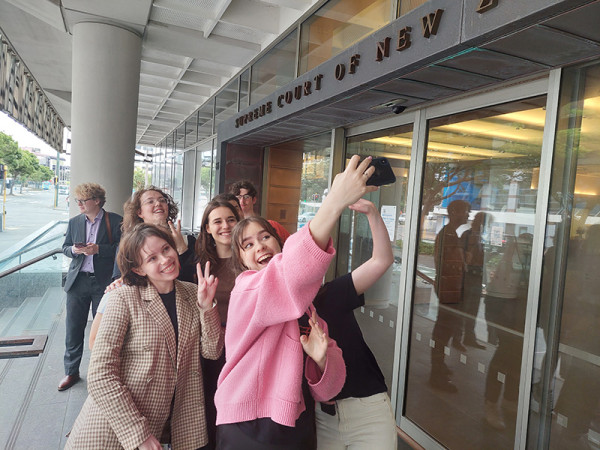An independent report into our electoral system has outlined a raft of recommendations including lowering the voting age to 16 and allowing prisoners the right to vote, but the government has ruled those out.
The Independent Electoral Review was established in 2022 by then Minister of Justice Kris Faafoi to review Aotearoa New Zealand’s electoral system.
In its final report released today, it outlines a series of transformative changes to the voting process, including giving 16-year-olds the right to vote.
“Having reviewed the evidence, we are confident that 16-year-olds are just as capable of making informed decisions about how to vote as 18-year-olds.
“Lowering the voting age could also support improved participation, based on emerging research from other countries,” the report says.
But Justice Minister Paul Goldsmith ruled it out straight away.
In a statement accompanying the report’s release, Goldsmith says the government will make a formal response “in due course” but drew a line through some of the initial advice.
“A number of recommendations can be ruled out immediately, such as lowering the voting age to 16, allowing all prisoners to vote and stand for Parliament,” he said in a statement.
Make It 16 co-director Thomas Brocherie says he was delighted at the report’s findings but disheartened at the government’s response.
“It’s just really, really disappointing, because we’ve always been open to talk to governments and talk to National Party MPs about lowering the voting age, obviously, as they are the government, they have the mandate to do what they like.
“And [it] just makes me wonder how are these voters going to repay them in the future if they are blocking their human rights?”
Brocherie says there is overwhelming evidence that lowering the voting age to 16 is a human rights issue.
In November 2022, the Supreme Court agreed.
The Make It 16 campaign argued the voting laws are inconsistent with the Bill of Rights Act on the basis of age discrimination and wanted the Courts to make a declaration of inconsistency.
After the High Court and Court of Appeals ruled against them, it was taken to the Supreme Court which granted an appeal.

Make It 16 campaigners celebrate outside the Supreme Court in November 2022. Photo: 1News
Brocherie says the arguments from MPs against lowering the voting age are very “poor”.
“I just don't see how there would be any good reasoning. So I'd love to see a further explanation. [We] could have a very productive debate on that. But look, I just don't see there being any good reasons,” he says.
Goldsmith didn’t give a reason in his statement today but in November 2022, while in opposition, he said his party was yet to see a strong argument to support lowering the voting age.
“You’ve got to draw the line somewhere and 18 [years] has been appropriate. We think it works well,” he told RNZ’s Morning Report.
He added: “I just don’t think it’s the kind of burning platform that needs to be resolved quickly.”

Justice Minister Paul Goldsmith. Photo: Hagen Hopkins/Getty Images
The report released today followed two rounds of public engagement which generated 7500 submissions.
Among other changes the report recommended allowing prisoners to cast ballots in general elections.
At the moment, prisoners serving a sentence of three or more years can’t vote.
“In our view, all prisoners should have the right to vote… Given the fundamental nature of the right to vote, disenfranchisement should not form a part of someone’s punishment,” the report says.
While the government has also refused that recommendation, it has accepted another.
The report was in favour of holding a referendum to let voters decide if the parliamentary term of three years should be longer.
Justice Minister Goldsmith says the government has already committed to introducing the Constitution Amendment Bill, as part of National’s deal with ACT, which would enable a four-year-term.
If it passes, it will be subject to a binding referendum.
More stories:
Lowering NZ's voting age: Why this shouldn't go to a referendum
What if women’s right to vote had been left to a referendum only men could vote in?
Supreme Court rules NZ voting age is a human rights breach
Make it 16's co-director Caeden Tipler says it's an historic judgement.
New year, new tenancy? What landlords can and can’t make you do
Here are a few things to be aware of when navigating a rental agreement.